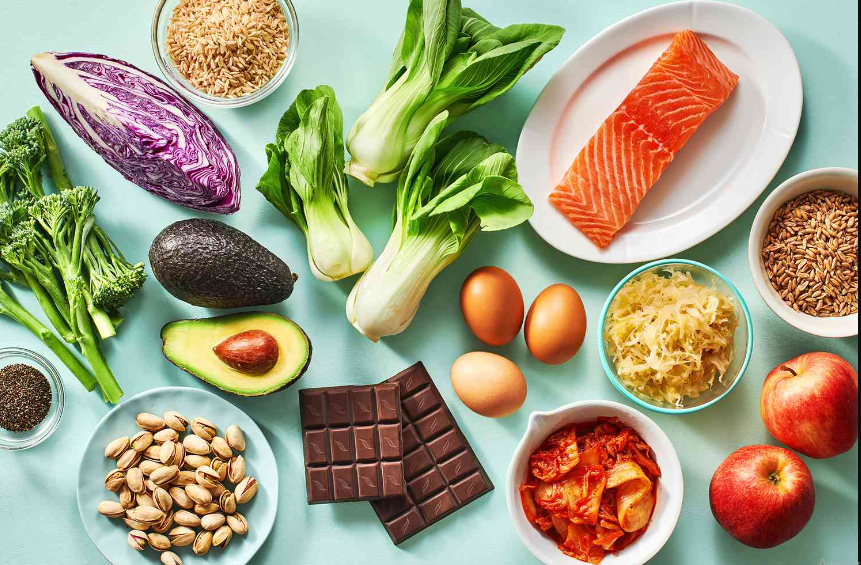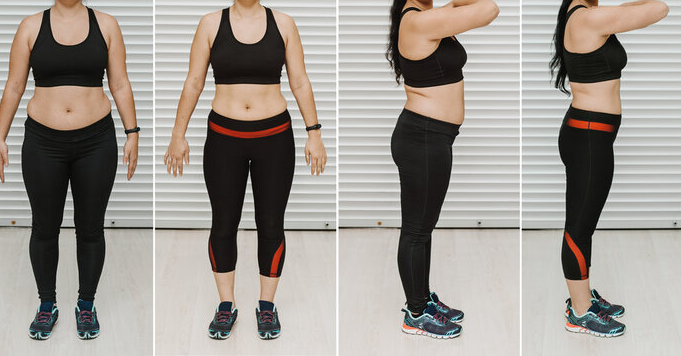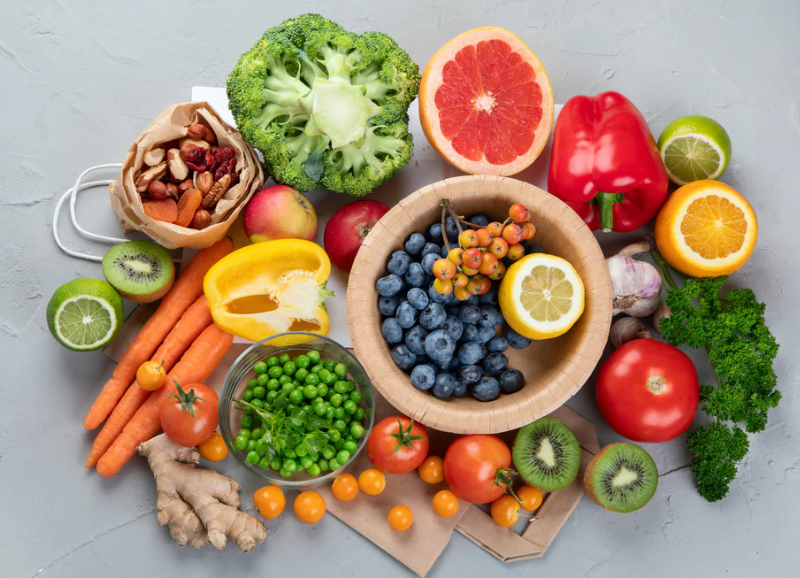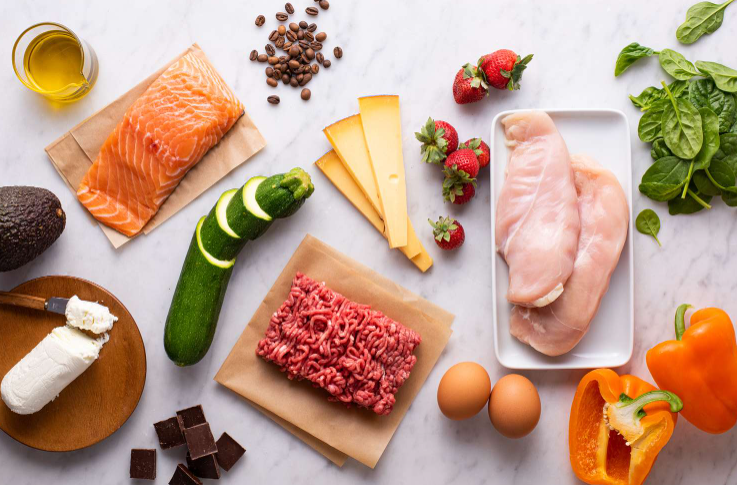What to Eat When Losing Weight: A Comprehensive Guide:
For many people who want to get healthier and feel better about themselves, losing weight is a typical desire. You can reach your weight loss objectives more successfully and persistently by implementing a wholesome, balanced diet. What to Eat When Losing Weight
1. Put an Emphasis on Whole Foods:
Giving whole foods top priority is crucial if weight loss is the goal. Whole foods are more nutrient-dense and satisfying than processed foods since they are less processed and retain their original nutrients. To provide your body the nutrition it needs while encouraging satiety and cutting calories, include a diet rich in fruits, vegetables, lean proteins, whole grains, and healthy fats.
2. Load Up on Vegetables:
Vegetables are great for weight loss since they are high in fiber and low in calories. Leafy greens, broccoli, cauliflower, bell peppers, and carrots are examples of non-starchy veggies that should make up half of your plate. These nutrient-dense meals help with weight management and general health since they are loaded with vitamins, minerals, and antioxidants. (Top 10 healthy foods)
3. Go for Whole Grains:
Whole grains are high in fiber and slow-digesting complex carbs that provide you with long-lasting energy and a sensation of fullness. Choose whole grain products like pasta and bread made from whole wheat, brown rice, quinoa, oats, and barley. These high-fiber foods can aid with blood sugar regulation, lessen cravings, and promote weight loss.
4. Add Nutritious Fats:
Healthy fats, found in avocados, nuts, seeds, olive oil, and fatty fish like salmon, are a good source of fat-soluble vitamins and essential fatty acids. Plus, these fats are good for overall wellness. By keeping you feeling satisfied and full, they also reduce the likelihood that you will overeat.
5. Reduce Your Consumption of Processed Foods and Added Sugars:
These foods add unnecessary calories to your diet while offering little nutritional value. They may also result in blood sugar surges and falls, heightening cravings and appetite. Reduce how often you eat processed foods high in harmful fats, refined carbohydrates, and sugary snacks, desserts, and beverages. Rather, choose complete, nutrient-dense foods that will help you achieve your weight loss objectives.
6. Adopt a Portion Control Strategy:
Although eating a healthy diet is essential for weight loss, controlling portion sizes is equally vital for calorie consumption. When eating out or snacking, pay attention to portion sizes and steer clear of excessive quantities. To determine the right portion sizes and prevent overindulging, use visual clues like measuring cups, plates, or your hand size.
7. Stay Hydrated:
Losing weight and maintaining general health depend on consuming enough water. Water promotes healthy digestion and metabolism, controls hunger, and removes pollutants. To cut calories and stay hydrated throughout the day, try to drink at least eight glasses of water each day and think about switching from sugary drinks to herbal tea or water.
8. Practice Mindful Eating:
Eating mindfully entails observing your meal selections, feelings of hunger and fullness, and eating patterns without bias or interruption. To avoid overeating, take your time eating, enjoy every meal, and pay attention to your body’s signals of hunger and fullness.
9. Seek Professional Advice:
You should think about consulting a licensed dietitian or nutritionist if you have any unique dietary demands or concerns, or if you’re not sure how to organize your diet for weight loss. These experts may make customized suggestions, design a plan of meals specifically for you, and give continuous support and accountability to help you safely and successfully reach your weight loss objectives.
Conclusion:
Keep in mind that losing weight is a slow process, and long-term success depends on adopting permanent lifestyle adjustments. You can attain your weight loss objectives and lead a better, happier life with commitment, consistency, and the appropriate food decisions. (What to Eat When Losing Weight)





